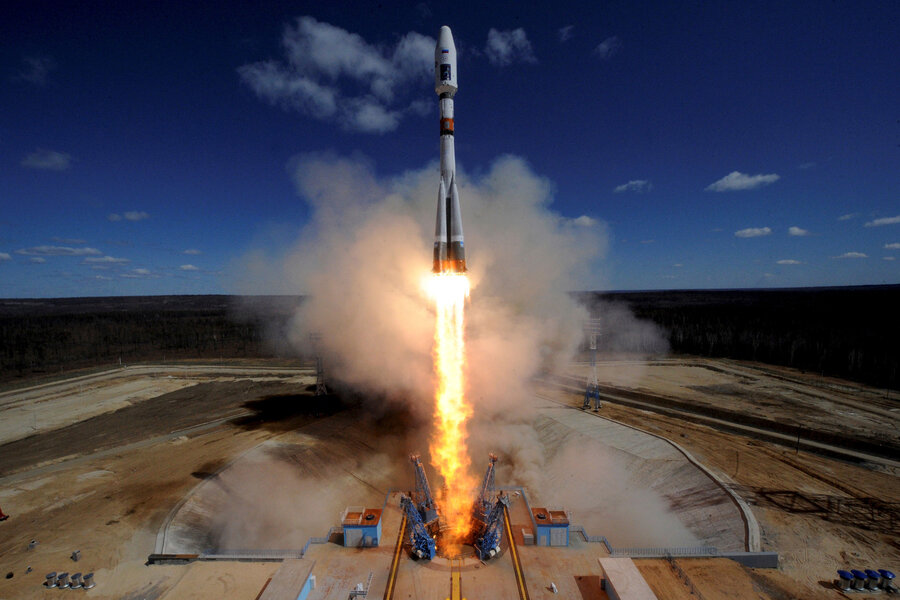Russia launches first rocket from troubled new cosmodrome
Loading...
Russia’s new cosmodrome is now ready for liftoff.
On Thursday, the first rocket launched from the Vostochny Cosmodrome, near the Chinese border, after a technical glitch postponed the scheduled launch. The unmanned Soyuz-2.1A rocket, which carried three satellites, was originally scheduled to liftoff on Wednesday but was called off shortly before the launch due to an apparent failure in one of the automatic safety sensors.
President Vladimir Putin was pleased about the successful launch, telling Roscosmos officials and workers at the cosmodrome, “I want to congratulate you. There is something to be proud of,” Reuters reports.
Corruption and tech issues have plagued Russia’s space industry, which causes problems not only for Russia but for other nations that rely on Russian technology for their own space missions. The United States has relied on Russia for flights to the International Space Station since Atlantis’s final space shuttle mission in 2011. Earlier this month, a European Space Agency launch in French Guiana that used a Russian rocket faced technical difficulties.
Since 2014, government funding for the Russian space program has more than halved. Moscow’s allocation for space flight over the next decade is approximately $21 billion, just one-tenth of US space subsidies. Russia currently leases the Baikonur Cosmodrome from Kazakhstan, but the new Vostochny Cosmodrome is meant to phase out Russia’s reliance on that spaceport. The Baikonur lease is scheduled through the year 2050.
The Moscow Times reports that the Vostochny cosmodrome is smaller and much less militarized than its southern cousin, with an emphasis on commercial space launches rather than military maneuvers. But construction on the facility, which will eventually include cosmonaut training facilities and living quarters, has been beset by corruption scandals and delays. The first launch was expected four months ago, and several project directors were arrested on corruption charges.
Russia also faces serious competition from America’s nascent commercial spaceflight industry, which is developing flights to the International Space Station that are much cheaper than the ones Russia currently offers. NASA has reported that it costs $76 million per Russian flight to the space station, while it would only cost $58 million to fly on an American-operated private spacecraft.
Putin acknowledged the challenges ahead. “We are now facing a second stage here, to accommodate a heavy rocket. We have a lot of work in front of us, and it's daunting. But beyond all doubt, this is ... a very serious step forward in the development of Russia's space exploration.”
Material from Reuters and The Associated Press was used in this report.






